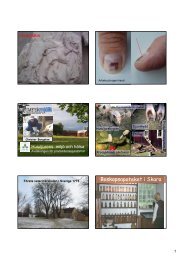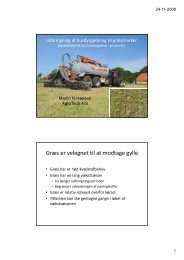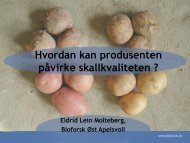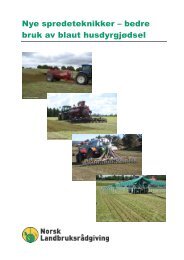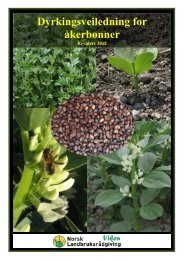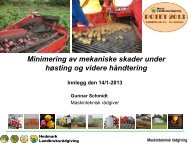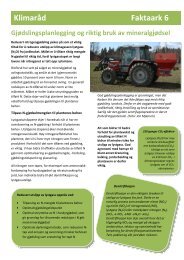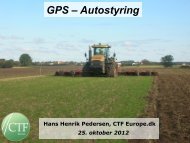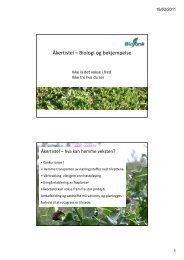You also want an ePaper? Increase the reach of your titles
YUMPU automatically turns print PDFs into web optimized ePapers that Google loves.
Crop Covers<br />
The most effective and most commonly used non-chemical method to control carrot psyllid<br />
and other insect pests of carrot is to cover the crop with insect net or other covers.<br />
Because of the psyllid's small size the netting must have a fine mesh. If the crop is covered<br />
from emergence until the main flight period is done, the carrots should be well protected<br />
from attack. When applying the netting at emergence it is important that the carrots are<br />
sown in depressions of at least 5 cm so the newly emerged plants are not physically<br />
damaged by contact with the net. One problem with this method is the extra labor and<br />
exposure to attack when removing the covers to allow for mechanical weed control<br />
(herbicides can be applied through the netting). Another problem is the change in<br />
microclimate, with both higher humidity and higher temperature. The higher humidity<br />
encourages plant diseases. The higher temperatures (as high as 64° C has been recorded)<br />
cause physiological disorders and negatively affect the quality of the crop.<br />
Exclusion Fences<br />
Fences made of insect netting have been successful in keeping some insect pests out of<br />
vegetable fields. This method was developed especially for low-flying insects such as<br />
cabbage and turnip root flies (Delia spp.)(Meadow & Johansen 2005). Kristoffersen and<br />
Anderbrant (2007) found adult carrot psyllids up to a height of 4 meters above the ground<br />
in spruce trees. In Rygg's studies (1977), there were only small differences between traps 8<br />
cm or 70 cm above the ground in numbers of adult carrot psyllids migrating into the field.<br />
Both of these studies tend to negate the probability of fences being effective to keep<br />
carrot psyllids out of carrot fields. A netting impregnated with insecticide, currently in use<br />
worldwide for protection from and control of mosquitoes, has been developed to protect<br />
vegetable crops from insect pests (fig. 6). Produced by Vestergaard-Fransen under the<br />
tradename Fence ® , the netting is intended to both exclude certain insect pests and<br />
through its attractive color and insecticidal effect, it reduces the pest population by way<br />
of "trap and kill". This type of fence might be a tool in an integrated strategy against the<br />
carrot psyllid.<br />
Meadow. Bioforsk Rapport vol. 5 nr. 151 2010<br />
7




